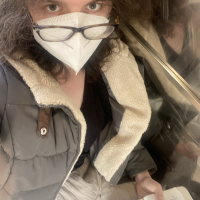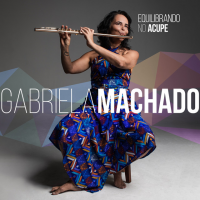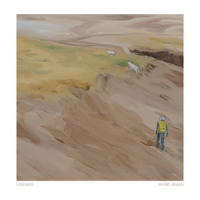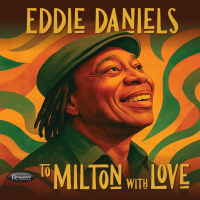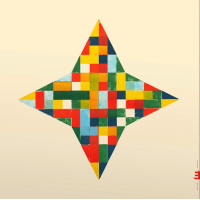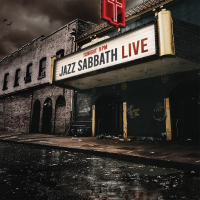Home » Jazz Articles » Album Review » Manfred Schoof: European Echoes
Manfred Schoof: European Echoes
The brass—Schoof, Hugh Steinmetz, Enrico Rava, Paul Rutherford—lose much of their rollicking complexity in the first act, while Irene Schweizer on piano and the bass duo of Arjen Gorter and Peter Kowald are, at times, virtually imperceptible in the second. From the first few seconds of billowing Han Bennink and Pierre Favre drum mayhem, the listener is thrust into an environment of severe intensity, like that same diamond bursting with an impenetrable light. In 2025, finally, there is a remaster to bring that elysian glow to its most detailed glory.
Olaf Rupp's new remaster manages to clarify some of the knottier pieces of the recording, especially Schweizer and Alexander von Schlippenbach's tête-à-tête at the first half's climax. But what is exceptional about the mammoth session is not the quality of the performers present, most of whom here lacking the acclaim and mile-long resumes they would amass later in their careers. In 1969, the Manfred Schoof Orchestra was less an all-star dream team, but instead simply the shining stars of Schoof's old group with von Schlippenbach and Gerd Dudek.
European free jazz had already produced a defining catalogue with Peter Brötzmann's Machine Gun in 1966, Schlippenbach's Globe Unity and a slew of recordings by the Spontaneous Music Ensemble, but it was far from the de facto 'jazz of Europe' as it would be hailed in the coming decade. Up until the late '60s, free jazz in Europe was understood as a rather intimate phenomenon, mostly relegated to trios and quartets, sometimes attempting the quartet or quintet. Free orchestras had begun as somewhat of a novelty, and in Schlippenbach's Globe Unity Orchestra's case, a terrible scandal. Schoof's Orchestra is introduced during a time of regional hostility to its own ethos, and instead of diluting or softening its blow, the musicians make it hard, mean and undeniable.
Favre and Bennink sound the starting shot for the orchestra with an opening ruckus. The brass section explodes into Ragnarokian scorch-fire, while Schweizer and Kowald begin the long, thorny march to their own section. Again, keys and strings suffered the most from muddied recordings and, in this newest remaster, their role in defining the horns' and reeds' limitations, even within the free-for-all framework Schoof has constructed. Schweizer's piano is as forceful as Schoof and co., but also terribly concise, like little puncture wounds in this mythical beast birthed from the rocking womb of Evan Parker, Brötzmann and Dudek.
If the metaphors seem more inclined toward depictions of heavy metal and hard rock, there is no mistake there, as certain passages take on an almost Wagnerian character with rousing crescendi intricated by dark, furtive rumblings. As opposed to the elusive chaos of John Coltrane's ensemble work, Schoof's work is orchestral, not a combination of idiosyncratic artists but a taut collection of sounds aspiring toward a defined goal (however mysterious that goal may be). And Rupp's remaster finally allows the listener to gleam through Schoof's aggravated ruckus.
The solos scattered about both pieces are one thing, but the orchestra as one pulsating mass is quite another, and certainly mischaracterized as just a matter of rampant 'intensity.' The musicians ebb and flow their strange adventure in a distinctly dramatic form. Notice how Schoof leads the renegade Brötzmann and Parker to squealing heights at the five-minute mark, and still manages to take control of their caterwauling descent. Schoof acts as maestro just as much as he is an individual player, and it is his classical approach to the emerging European free jazz tradition that suggests its own continental identity.
Track Listing
European Echoes, Part 1/ European Echoes, Part 2.
Personnel
Manfred Schoof
trumpetAdditional Instrumentation
Enrico Rava: trumpet; Manfred Schoof: trumpet; Hugh Steinmetz: trumpet; Peter Brötzmann: tenor saxophone; Gerd Dudek: tenor saxophone; Evan Parker: soprano, tenor saxophones; Paul Rutherford: trombone; Derek Bailey: guitar; Fred Van Hove: piano; Alexander von Schlippenbach: piano; Irène Schweizer: piano; Arjen Gorter: double bass; Peter Kowald: double bass; Buschi Niebergall: double bass; Han Bennink: drum; Pierre Favre: drums.
Album information
Title: European Echoes | Year Released: 2003 | Record Label: Atavistic Worldwide
Tags
PREVIOUS / NEXT
Support All About Jazz
 All About Jazz has been a pillar of jazz since 1995, championing it as an art form and, more importantly, supporting the musicians who make it. Our enduring commitment has made "AAJ" one of the most culturally important websites of its kind, read by hundreds of thousands of fans, musicians and industry figures every month.
All About Jazz has been a pillar of jazz since 1995, championing it as an art form and, more importantly, supporting the musicians who make it. Our enduring commitment has made "AAJ" one of the most culturally important websites of its kind, read by hundreds of thousands of fans, musicians and industry figures every month.

